“What Will You Read This Summer?” I asked several friends (and family members) to tell us what’s ahead reading-wise for the next few months. Below, you’ll find responses from Darrell Byers, Molly Coogan, Christoph Irmscher, Tess Lewis, Norman Lock, Esteban Rodríguez, Elaine Sexton, Ben Shattuck, Jenny Slate, Alina Stefanescu, Heather Treseler and Leah Umansky.
◆ ◆ ◆ ◆ ◆
Darrell Byers
The Friday Afternoon Club by Griffin Dunne (Penguin, 2024]
Promise by Rachel Eliza Griffiths (Random House, 2024)
The Barn by Wright Thompson (Penguin, 2024)
Great Expectations by Vinson Cunningham (Hogarth, 2025)
The 272 by Rachel L. Swarms (Random House, 2023)
 Darrell Byers is the CEO of Interise and a leader in managing mission-driven nonprofit organizations, with over 30 years of experience driving positive change. Beyond his professional life, Darrell finds inspiration at the annual Sun Valley Writers’ Conference, where he engages with some of the world’s most influential writers and thinkers. His passions — ranging from the Red Sox and U2 to NPR, golf, and time spent on Martha’s Vineyard — keep him grounded, alongside the unwavering support of friends and family.
Darrell Byers is the CEO of Interise and a leader in managing mission-driven nonprofit organizations, with over 30 years of experience driving positive change. Beyond his professional life, Darrell finds inspiration at the annual Sun Valley Writers’ Conference, where he engages with some of the world’s most influential writers and thinkers. His passions — ranging from the Red Sox and U2 to NPR, golf, and time spent on Martha’s Vineyard — keep him grounded, alongside the unwavering support of friends and family.
◆ ◆ ◆ ◆ ◆
Molly Coogan
Absence by Issa Quincy (Two Dollar Radio, 2025)
Things in Nature Merely Grow by Yiyun Li (FSG, 2025)
People Like Us by Jason Mott (Dutton, 2025)
Disposable by Sarah Jones (Avid Reader Press/Simon & Schuster, 2025)
Brother Brontë by Fernando A. Flores (MCD, 2025)
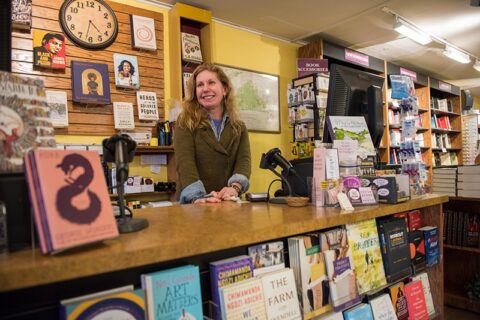 Molly Coogan is the owner of the Bunch of Grapes Bookstore on Martha’s Vineyard.
Molly Coogan is the owner of the Bunch of Grapes Bookstore on Martha’s Vineyard.
◆ ◆ ◆ ◆ ◆
Christoph Irmscher
I have been working on a non-fiction manuscript titled Borrowed Lives arranged around old family photographs, a reconstruction of the lives of people long dead but somehow, through the coincidence of shared bloodlines, related to me. The manuscript covers two centuries with chapters set in Egypt, Italy, England, Germany, and the United States. Now that borders everywhere are tightening and the world threatens to become, like the minds of those running it, smaller and narrower, I have been much concerned, for personal as much as political reasons, with the meaning of exile and displacement: the question why home truly becomes home once you are away from it. My summer reading list is composed of books that might help me further understand that question.
Austerlitz by W. G. Sebald (Modern Library, 2001). The story of a man who escaped from the Nazis when he was a child and has no knowledge of his roots.
Out Of Egypt by Andrew Aciman (Picador, 1997). One of my favorite books of 2024 was Aciman’s My Roman Year, full of memorable characters and lyrical descriptions of Rome, his family’s new home after expulsion from Egypt. The new book recreates the events that occurred just before the exile.
… and also …
The Anthropologists and Long Distance: Stories by Aysegül Savas (Bloomsbury, 2024 & 2025)
Baldwin: A Love Story by Nicholas Boggs (FSG, 2025)
Joseph and His Brothers by Thomas Mann (Everyman’s Library, 1933)
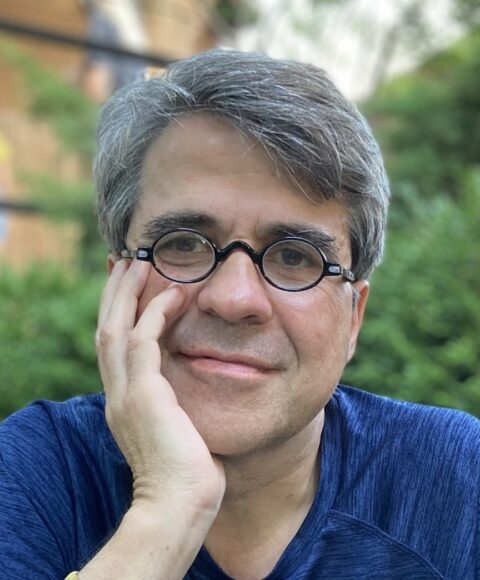 Christoph Irmscher is the author of several books, including Max Eastman: A Life and, most recently, Audubon at Sea (with Richard King). He serves on the board of the National Book Critics Circle, where is a Co-Vice President for Awards. A regular book reviewer for The Wall Street Journal and On The Seawall, he teaches English at Indiana University Bloomington.
Christoph Irmscher is the author of several books, including Max Eastman: A Life and, most recently, Audubon at Sea (with Richard King). He serves on the board of the National Book Critics Circle, where is a Co-Vice President for Awards. A regular book reviewer for The Wall Street Journal and On The Seawall, he teaches English at Indiana University Bloomington.
◆ ◆ ◆ ◆ ◆
Tess Lewis
After years of experience triumphing over hope, I have largely given up making aspirational resolutions on or around the new year. One thing my ego and I cling to, however, are reading resolutions at all times of the year, most especially when the clock jumps forward and summer looms promisingly on the horizon. My summer reading list this year is unrealistically long and metastasizing wildly, so I’ll stick to the (current) top of the pile.
Of the five titles I’m especially looking forward to tackling, two straddle the lines between theory and practice, real life and reading, and idealism and clear-eyed realism.
Theory & Practice by Michelle de Kretser (Catapult, 2025). A graduate student from Sri Lanka newly arrived in Melbourne to work on Virginia Woolf’s fiction must confront her literary heroine’s feet of clay.
Practice by Rosalind Brown (FSG, 2024). As Annabel struggles to write an essay on Shakespeare’s sonnets, Brown mines the comedy inherent in the increasing gap between intellectual ambition and fraying attention in the internet age.
The Deserters by Mathias Énard, translated by Charlotte Mandell (New Directions, 2025). Two narrative threads: one about the anti-fascist mathematician, poet and Holocaust survivor Paul Heudeber and another about an unnamed soldier deserting from an unspecified war.
Finally I’m looking forward to two prose collections that examine language’s central role in determining how we think about nations, history, culture and the self:
To Save and Destroy: Writings as an Other by Viet Thanh Nguyen (Belknap, 2025) and Decolonizing Language and Other Revolutionary Ideas by Ngũgĩ wa Thiong’o (New Press, 2025).
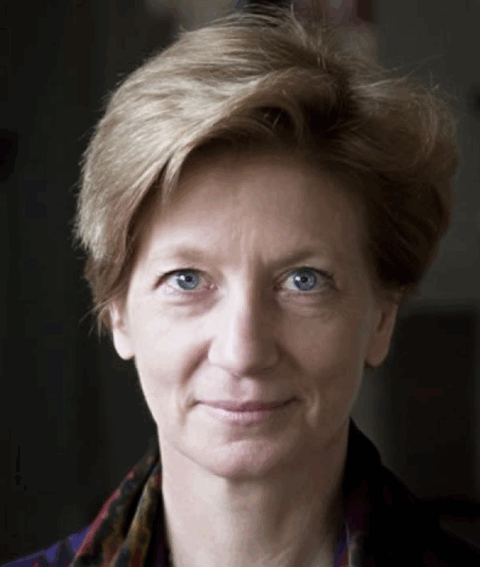 Tess Lewis is a writer and translator from French and German. Her translations include works by Walter Benjamin, Ingeborg Bachmann, Peter Handke, and Montaigne. www.tesslewis.org
Tess Lewis is a writer and translator from French and German. Her translations include works by Walter Benjamin, Ingeborg Bachmann, Peter Handke, and Montaigne. www.tesslewis.org
◆ ◆ ◆ ◆ ◆
Norman Lock
“Monuments of unageing intellect” — Yeats’ phrase from “Sailing to Byzantium.” This summer I will return to three of them:
Four Quartets by T. S. Eliot (published individually 1936-1942)
Cantos by Ezra Pound (1925)
Untitled Subjects by Richard Howard (1969)
Will the light on these monuments of my green time have been strengthened by the passing years or has the shadow deepened? When last I read them, I had only a young person’s circumference of thought and feeling to rely on. Now that I am “a tattered coat upon a stick,” I may find old age has conferred a gift on me to make the color come out clear. Or not.
… and also …
Monument by Natasha Trethewey (Ecco, 2018)
Door in the Mountain by Jean Valentine (Wesleyan, 2004)
Incarnadine by Mary Szybist (Graywolf, 2013)
What will their effect on the mind, heart, and the organ that once was called the soul be on this old man — an old white man, by genetic happenstance? I wait to be uplifted or cast down.
 Norman Lock is the author of the twelve books of The American Novels series, published by Bellevue Literary Press, as well as other novels, short story and fiction collections, stage and radio plays, two books of poetry, and a screenplay.
Norman Lock is the author of the twelve books of The American Novels series, published by Bellevue Literary Press, as well as other novels, short story and fiction collections, stage and radio plays, two books of poetry, and a screenplay.
◆ ◆ ◆ ◆ ◆
Esteban Rodríguez
Midnight is Not in Everyone’s Reach by Antonio Lobo Antunes (Dalkey Archive, 2025)
A polyphonic novel set over the course of three days, Midnight is Not in Everyone’s Reach is a stunning meditation on memory and time. If you’ve read anything by Antonio Lobo Antunes, you know you are in for lengthy sentences, fragmented narratives, and philosophical inquiries that explore the boundaries of morality and existence.
Son and Daughters by Chaim Grade (written in the 60’s and 70s, new edition via Knopf)
Originally serialized in the 1960s and 1970s in New York–based Yiddish newspapers, Chaim Grade’s Sons and Daughters is a precious glimpse of a way of life that is no longer — the rich Yiddish culture of Poland and Lithuania that the Holocaust would eradicate. At 600 pages, this is a novel to be savored, and as the complexities of family dynamics play out over different landscapes and generations, I look forward to diving deeper into Grade’s often neglected but important work.
Made for Love by Amy Nutting (Ecco, 2017)
Perceptive and compulsively readable, Made for Love is at once an absurd, raunchy comedy and a dazzling, profound meditation on marriage, monogamy, and family. Having just finished Tampa and Nutting’s short story collection Unclean Jobs for Women and Girls, I know I will be in for a wild ride that makes no apologies for its commentary on how complex the human condition truly is.
The Poetry of Derek Walcott 1948-2013 by Derek Walcott (Farrar, Straus & Giroux, 2017)
This collection presents the themes Walcott grappled with over sixty-five years: the unsolvable riddle of identity; the painful legacy of colonialism on his native Caribbean island of St. Lucia; the mysteries of faith and love and the natural world. Walcott holds a special place in my journey as a writer. His work was instrumental to finding my voice and to understanding that the personal is always universal.
Collected Poems by Lorna Goodison (Carcanet, 2017)
The Collected Poems of Jamaica’s Poet Laureate (2017-2020) takes us to the loved and lived-in world of Jamaica where she began and started a family, to the United States and Canada where she has made her teaching career. Regardless of where she is, Goodison always reconnects with her Caribbean roots. I’ve read very little of Goodison, but what I have read of her work reminds me that our life can serve as a source of inspiration and admiration.
Blood Meridian: Or the Evening Redness in the West by Cormac McCarthy (Modern Library, 2001)
Based on historical events that took place on the Texas-Mexico border in the 1850s, Blood Meridian traces the fortunes of the kid, a fourteen-year-old Tennesseean who stumbles into the nightmarish world where Indians are being murdered and the market for their scalps is thriving. I read this novel every summer, and it never ceases to amaze me of the violence that once existed in this country. It always reminds me that such an indifferent mentality about others still lives today, and that this nation has a lot of work to do to right the wrongs of the past.
Paradise by Toni Morrison (Knopf, 1997)
Founded by the descendants of freed slaves and survivors in exodus from a hostile world, the patriarchal community of Ruby, Oklahoma is built on righteousness, rigidly enforced moral law, and fear. But seventeen miles away, another group of exiles has gathered in a promised land of their own. And it is upon these women in flight from death and despair that nine male citizens of Ruby will lay their pain, their terror, and their murderous rage. Morrison’s work is relevant now more than ever, and with such poetic language and captivating narratives, I’d be remiss not to read something that challenges me at every turn.
 Esteban Rodríguez is the author of eight poetry collections, most recently Lotería (Texas Review Press, 2023), and the essay collection Before the Earth Devours Us (Split/Lip Press, 2021). His work has appeared in New England Review, Seneca Review, Colorado Review, Adroit Journal, Poetry Daily, and American Life in Poetry. He is the interviews editor at the EcoTheo Review, senior book reviews editor at Tupelo Quarterly, and associate poetry editor at AGNI.
Esteban Rodríguez is the author of eight poetry collections, most recently Lotería (Texas Review Press, 2023), and the essay collection Before the Earth Devours Us (Split/Lip Press, 2021). His work has appeared in New England Review, Seneca Review, Colorado Review, Adroit Journal, Poetry Daily, and American Life in Poetry. He is the interviews editor at the EcoTheo Review, senior book reviews editor at Tupelo Quarterly, and associate poetry editor at AGNI.
◆ ◆ ◆ ◆ ◆
Elaine Sexton
The Patient Body, A Personal Narrative in Pieces, by Sebastian Matthews (Red Hen, 2025). I expect this collection of short essays to be as powerful and as moving as Beyond Repair, Living in a Fractured State (2020). Matthews’ subject matter draws, again (how could it not?) from the challenges of recovery from the life-altering injuries from head-on collision on a highway with his family in 2011. In this follow up collection, he offers a link from his fractured world to what we face in navigating our own.
The Work of Art: How Something Comes From Nothing by Adam Moss (Penguin, 2024). A former editor, Moss talked to dozens of artists and makers (from Stephen Sondheim to Kara Walker) while exploring his own a deep dive into trying to make visual art. Illustrations of their works in progress are what make this appear to be a coffee-table book, but the stories promise to be a truly enlightening good read.
Fox 8 by George Saunders (Random House, 2018). This tiny book is really a book-length story, a parable involving a fox. And is not new (published in 2013). I’m late in coming to appreciate Saunders, which all changed with Lincoln in the Bardo. I’m saving this book for just the right afternoon this summer, a season when foxes are more active than ever.
Death Comes for the Archbishop by Willa Cather (Dover, 2023). I’ve never read Cather’s second novel, but just reading the four first lines of this slightly crusty former library book has me enthralled.
After Sappho by Selby Wynn Schwartz (Liveright, 2023), long-listed for the 2022 Booker Prize. A series of vignettes, this novel reimagines the lives of turn-of-the-20th century feminists in what has been described as a wildly innovative style, weaving the lives of the likes of Virginia Woolf, Josephine Baker, Natalie Barney, and others, all inspired by Sappho. This is the line that sold me on the book: “A poet is someone who swims inexplicably away from the shore, only to arrive at an island of her own invention …”
Also … Blood Wolf Moon by Elise Paschen, Still Water Carving Light by Peggy Shumaker, Old Stranger by Joan Larkin, Of Tyrant by Leah Umansky, and Yes and No by John Skoyles.
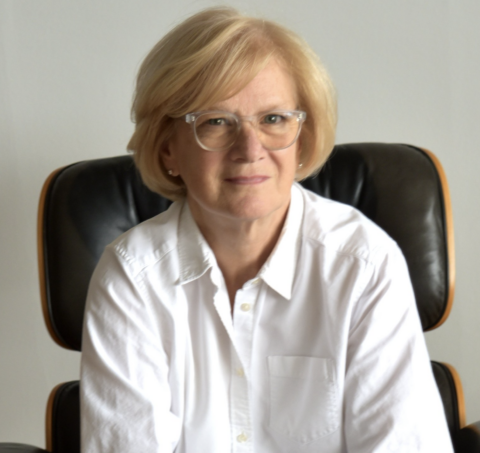 Elaine Sexton’s latest collection of poems is Site Specific: New & Selected Poems (Grid Books, 2025). Her poems, art reviews, book reviews, and works in visual art have appeared in journals and anthologies, textbooks and websites including American Poetry Review, Art in America, Poetry, On The Seawall, Ploughshares, O! the Oprah Magazine, and Poetry Daily.
Elaine Sexton’s latest collection of poems is Site Specific: New & Selected Poems (Grid Books, 2025). Her poems, art reviews, book reviews, and works in visual art have appeared in journals and anthologies, textbooks and websites including American Poetry Review, Art in America, Poetry, On The Seawall, Ploughshares, O! the Oprah Magazine, and Poetry Daily.
◆ ◆ ◆ ◆ ◆
Ben Shattuck
The Frog in the Throat by Markus Werner, translated but Michael Hofmann (NYRB, 2025)
What We Value: The Neuroscience of Choice and Change by Emily Falk (Norton, 2025)
Orbital by Samantha Harvey (Grove, 2024)
Castle Gripsholm by Kurt Tucholsky (NYRB Classics, 2019)
Meditations by Marcus Aurelius (General Press, 2025)
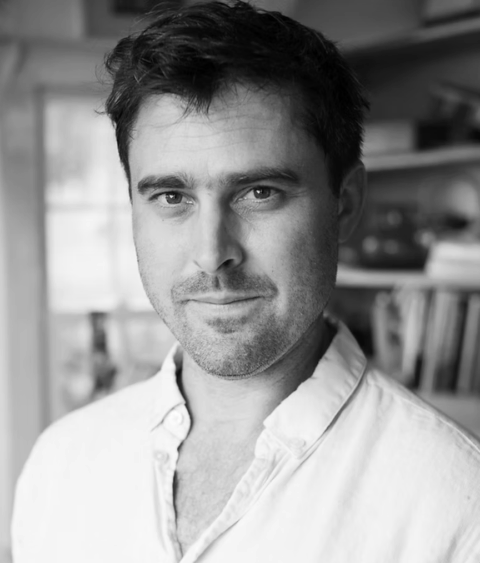
◆ ◆ ◆ ◆ ◆
Jenny Slate
Sun City by Tove Jansson (NYRB Classics, 2025)
This may be one of the only books of Jansson’s that I haven’t yet read (well, that’s a lie I haven’t read all of the Moomins, but I will one day!) and when I saw it on the NYRB site, my heart was a flutter and I put it at the top of my list for this summer.
Collected Essays: Culture, Politics and the Art of Poetry by Adrienne Rich (W.W.Norton, 2018)
My sister was telling me that she just started into this collection, mentioning some of the essays on parenting, and I jumped onto thriftbooks to get my own copy so that I can learn and enjoy alongside my sister.
Paris Stories by Mavis Gallant (NYRB Classics, 2002)
I was listening to The New Yorker Fiction Podcast and I heard a reading of one of Gallant’s pieces and decided that I needed more!
Sato the Rabbit: Morning Light by Yuki Ainoya (Enchanted Lion, 2021)
I’m on the pre-order list for this new Sato book, as the first three are huge favorites with me and my daughter Ida. These are picture books that are surreal and succinct, dreamy and vibrant but also inherently peaceful. If there were a million in the series I would read them all!
The Dud Avocado by Elaine Dundy (NYRB Classics, 2007)
Another reason to see what’s up at NYRB, this one caught my eye because (not sure if you’ve caught on yet) but I find myself drawn to voices from “before”, comforted by a long line of thinkers and feelers who completed fun, idiosyncratic and lively work, even during times of personal or cultural turbulence and uncertainty,
Still Life With Remorse by Maira Kalman (Harper Influence, 2024)
The one voice of this moment that I may actually place above all others. I’ve already read this, but it is the kind of text that I will return to many, many times over for refreshment and companionship and hope and also because Maira’s work helps me search through my own sadness in a helpful way.
 Jenny Slate is an actor, stand-up comedian and writer. Her latest book is Lifeform (Little Brown, 2024). In April 2025, FX/Hulu began streaming Dying for Sex, an 8-part mini-series co-starring Jenny and Michelle Williams.
Jenny Slate is an actor, stand-up comedian and writer. Her latest book is Lifeform (Little Brown, 2024). In April 2025, FX/Hulu began streaming Dying for Sex, an 8-part mini-series co-starring Jenny and Michelle Williams.
◆ ◆ ◆ ◆ ◆
Alina Stefanescu
Montano’s Malady by Enrique Vila-Matas, translated by Jonathan Dunne (Dalkey Archive, 2025).
“What will we do to disappear?” wondered Maurice Blanchot. Surely no mammal has answered this question as prodigiously as Enrique Vila-Matas, whose novel Montano’s Malady (as translated by Jonathan Dunne) returns to print this summer. We read and write to disappear, or so Vila-Matas has intimated across his oeuvre; the question is what form this disappearance will take. What are the conditions of the game at hand? Writing is a compulsion, an illness, a tuberculosis of the imagination. We write to resurrect the dead authors that ravished our minds, to play the game of fiction with them, and maybe get away with it. Montano’s malady is text-based: the protagonist’s bibliophilia bulldozes the boundary between real life and fictional reality. “I can’t look favorably on this meddling on the part of everyday life, especially while this awkward tension between novel and diary persists, entirely unnecessarily,” admits the narrator of Mac’s Problem in a different game by the same author. I give my mind to Vila-Matas that he may blow it, again, with surprise.
Miaow by Benito Peréz Galdós, translated by Margaret Jull Costa (NYRB Classics, 2025)
… brings that combination of 19th-century realism at the intersection of manners and hypocrisy that remains irresistible to me. Give me a long train ride and Galdós critique of Spanish social mores and rituals.
Memories That Smell Like Gasoline by David Wojnarowicz (Nightboat Books, 2025)
… cannot be missed. The cover image, David Wojnarowicz’s “Fuck You Faggot Fucker” (1984), depicts two naked men kissing in the ocean, their faces half-renderd, their eyes completely absent. The tension between the title and its subject speaks to the presence of what queer theorist Leo Bersani calls erotic “self-shattering.” Across his art and writings, Wojnarowicz touches a world he knows will break, a world he hopes to memorialize in words and images, to break and be broken with others. He died of AIDS at thirty-seven, in 1992, while Amy Scholder prepared the first edition of Memories That Smell Like Gasoline for press. At the time, Wojnarowicz was living in Peter Hujar’s last apartment in NYC with his lover, Tom Rauffenbart, who also had AIDS. A bedridden Wojnarowicz was able to see the book, although a friend had to read it aloud to him. He asked specifically to read the final lines: “I am waving my hands. I am disappearing. I am disappearing but not fast enough.” Wojnarowicz had dreamt of becoming a published writer since he was child. There is light in the fact that he saw his book before he died. Memories opens with a story offset by watercolors painted from memory by Wojnarowicz “after spending time at a porn theater.” What Scholder calls a “diary of desire” is also a story “the ways we keep pleasure alive by imagining.” It should be in every travel bag this summer— Wojnarowicz forever and ever.
Lantana or, the indissoluble exhalation by bruno darío, translated by Kit Schluter (Ugly Duckling Presse)
… will be the first appearance of bruno darío’s complete trilogy in a single volume. No additional notes are needed.
Terror Counter by Fargo Nissim Tbakhi (Deep Vellum Books)
… probes what it means to be Palestinian across multiple registers, including interpersonal, legal, literary, and rhetorical. As a fan of Tbakhi’s writing, this one is highly anticipated for me.
Daydreamers by Alvin Lu (FC2 Fiction Collective)
…promises another journey with Alvin Lu, who has an extraordinary capacity to build worlds that unseat order and genre simultaneously. I look forward to being unseated, blurred, and bewildered by this one.
… of course, Cigarettes by Harry Mathews (Dalkey Archive)
… will be in my suitcase. Also noted: an introduction by Lucy Sante. Allegedly about fraud in the art world, horse racing, and sexual intrigue, ultimately, Cigarettes will devolve into the sort of game Harry Mathews liked to play in text. The burning question is always what game he sets up, and what we become when reading or playing it.
 Alina Stefanescu‘s new poetry collection is My Heresies (Sarabande, 2025). Born in Romania and living in Birmingham, Alabama, she is a poet, writer, translator, and essayist whose work has been published in many literary journals and several anthologies.
Alina Stefanescu‘s new poetry collection is My Heresies (Sarabande, 2025). Born in Romania and living in Birmingham, Alabama, she is a poet, writer, translator, and essayist whose work has been published in many literary journals and several anthologies.
◆ ◆ ◆ ◆ ◆
Heather Treseler
Citizen Poet: New & Selected Essays by Eavan Boland, ed. by Jody Allen Randolph, with a foreword by Heather Clark (W.W. Norton, 2024)
Boland’s shadow continues to lengthen and deepen in contemporary poetry and in our understanding of Irish history, gender politics, and political violence. This volume presents some of her best essays and a selection of her uncollected prose.
Jailbreak of Sparrows by Martín Espada Knopf, 2025)
Espada’s new collection follows Floaters (2021), winner of the National Book Award in poetry, and he is the author of more than 20 volumes of poetry, prose, and translation. I teach Espada’s work frequently at Worcester State; students are astonished by the rhetorical power and haunting imagery of his poems.
Middlemarch by George Eliot (Penguin Classic, 2003)
Somehow I’ve never read it, and it’s time.
Organized by decade — and also, in independent sections, by poems about specific times of day — this curation of some of the New Yorker’s best poems is full of treasure and revelation. Young notes, in his introduction, that no Black poets graced the New Yorker’s pages between a poem by Langston Hughes in 1942 and a poem by Derek Walcott in 1972. But the anthology also illustrates how the magazine, in the last 40 years, has brought the full panoply of world poetry to the fore.
Love and Need: the Life of Robert Frost’s Poetry by Adam Plunkett (Farra, Straus & Giroux, 2025)
I’ve always felt a deficit in my apprehension of Frost’s work and life; Plunkett’s much anticipated biography will help me begin to remedy that.
 Heather Treseler’s new poetry chapbook is Hard Bargain (Lily Poetry Review, 2025), which follows Auguries and Divinations (Bauhan Publishing, 2024).
Heather Treseler’s new poetry chapbook is Hard Bargain (Lily Poetry Review, 2025), which follows Auguries and Divinations (Bauhan Publishing, 2024).
◆ ◆ ◆ ◆ ◆
Leah Umansky
Creature Needs: Writers Respond to the Science of Animal Conservation, ed. by Christopher Kendrick, Lucy Spelman and Susan Tacent (Minnesota, 2025). I’ve been in a nature/non-fiction reading groove since COVID times. Once we were able to return to daily, real life, I started to truly appreciate the natural world. Aimee Nezhukumatathil’s World Of Wonders and Helen Macdonald’s H Is For Hawk nudged me in that direction.
Ambush at Still Lake by Caroline Bird (Carcanet Press, 2024). I’m a big fan of Caroline Bird’s poetry; we recently read together at the Sarah Lawrence Poetry Festival where I raced over to the bookseller’s table to buy her new collection before they sold out.
Night Myths by Abi Pollokoff (Red Hen Press, 2025). A debut collection of poems.
Pilgrim at Tinker Creek by Annie Dillard (Harper Perennial Classic, 2007). I was inspired by an audio recording of one of Dillard’s essays, “Seeing,” and will now finally read the book.
Lifeform by Jenny Slate (Little, Brown, 2024). Jenny’s first book Little Weirds came into many life just when I needed it. Her work feels like a friendship.
 Leah Umansky is an educator, poet, writer, and artist whose newest collection of poems is Of Tyrant (The Word Works). She earned her MFA in Poetry at Sarah Lawrence College and has hosted The COUPLET Reading Series in NYC since 2011. Her work can be found on PBS, The Slowdown Podcast, and such places as The New York Times, Plume, Rhino, and Poetry.
Leah Umansky is an educator, poet, writer, and artist whose newest collection of poems is Of Tyrant (The Word Works). She earned her MFA in Poetry at Sarah Lawrence College and has hosted The COUPLET Reading Series in NYC since 2011. Her work can be found on PBS, The Slowdown Podcast, and such places as The New York Times, Plume, Rhino, and Poetry.